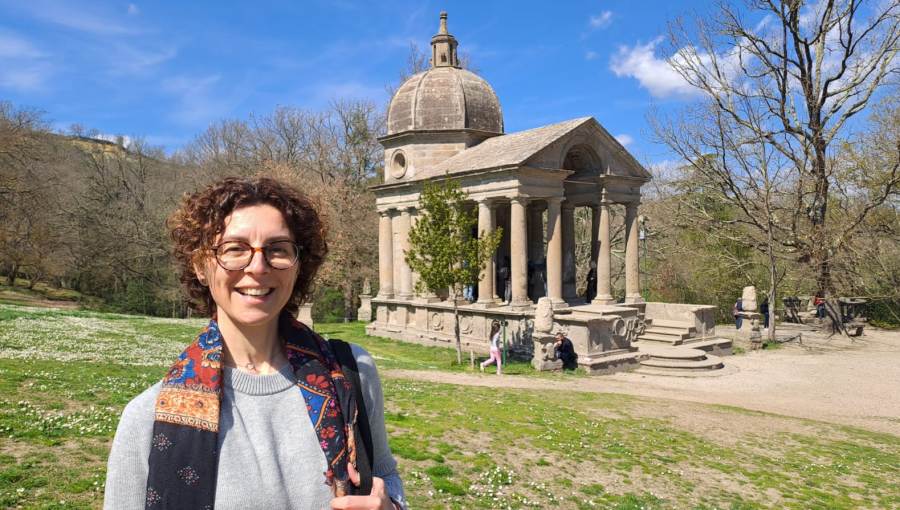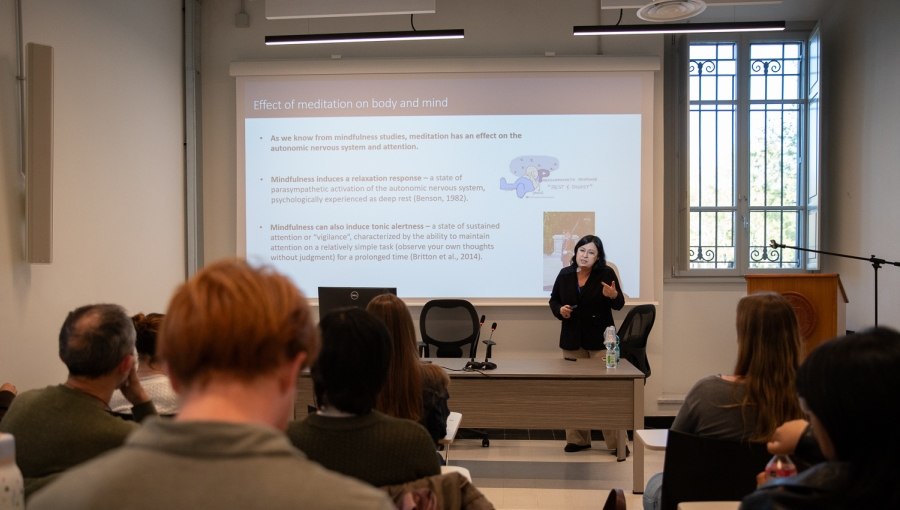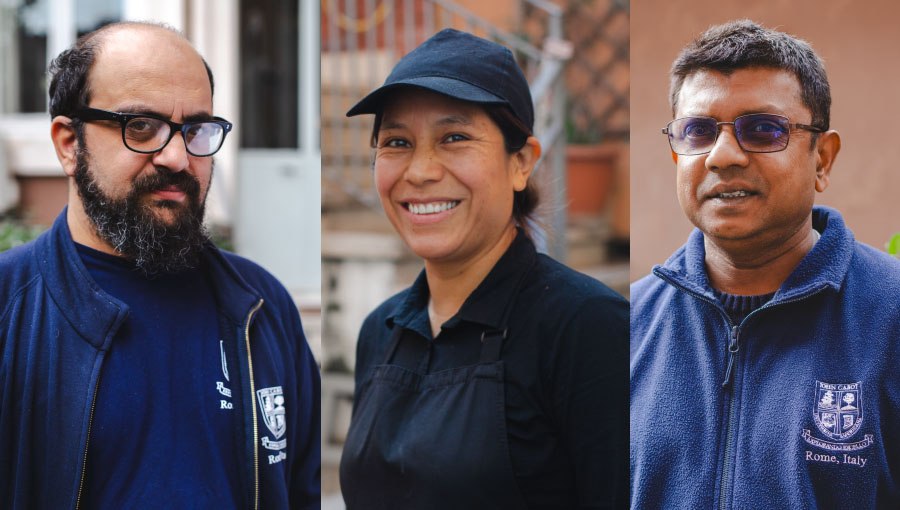How Your Mind Works: Meet Professor Elisa Puvia
Professor Elisa Puvia joined the JCU Department of Psychological and Social Sciences in 2022. She holds a Ph.D. in Cognitive Psychology from the University of Padua. In the Fall 2023 semester, Professor Puvia will be teaching Cognitive Psychology and Socio-Cognitive Perspectives on Objectification and Dehumanization.
Tell us about your background and what brought you to JCU.
I have always been interested in the study of the human mind and the way it works. What intrigues me the most is to try to understand the cognitive mechanisms underlying human behavior. Over the course of my academic career, I have had the chance to collaborate with scholars across different disciplines at various universities. I worked at the University of South Florida (USF), the University of Kent, the University of Melbourne, and the University of Brussels (ULB), among others. I have always enjoyed working with people from different cultural backgrounds, so when I heard about JCU I thought I would love to be part of an academic community that promotes multi-disciplinarity and cultural diversity.

How did you become passionate about Psychology? What are your main research interests?
My passion for psychology is grounded in everyday life experiences. I have always been bitterly disappointed by the way in which women are portrayed in sexualized advertising.
The pervasiveness of women’s objectification inspired me to extensively investigate its possible motivations, cultural foundations, and cognitive and existential underpinnings with the aim to broaden our understanding of it. One of my lines of research, for example, highlighted that the tendency to chronically and pervasively focus on physical appearance can translate into dehumanizing women.
Surprisingly, we also discovered that objectifying women is not a behavior that is limited to men. In our study we found that women were just as likely to objectify and dehumanize other women.
A different line of research I am currently pursuing, is focused on how people think about food, and what drives their dietary habits and decisions. I am a vegetarian and quite often when discussing food choices with meat eaters, I witness a great deal of psychological discomfort. Therefore, in my research, I try to understand how people perceive, think, and categorize animals, and what are the motivational and cognitive mechanisms that drive meat consumption.
What is your teaching philosophy? What would you like students to take away from your classes?
I’ve always enjoyed teaching. My approach has always been to promote and prioritize students’ interests, encouraging them to ask questions and make comments. One of the courses I often teach is Cognitive Psychology, where students learn about different cognitive processes, such as attention or memory. The course often seems very abstract to students and detached from their day-to-day experience. Therefore, another aspect I focus on, is the application of psychology to students’ own experiences. One of my most common question is: “How are these findings relevant to our everyday lives?”
What is your impression of JCU so far?
I truly enjoy the international and multicultural environment of JCU. Teaching students from different cultural backgrounds is an enriching experience and a unique feature of JCU compared to Italian universities.
Tell us about the “Socio-Cognitive Perspectives on Objectification and Dehumanization” class that you will be teaching in Fall 2023.
I am so thrilled about teaching this course because it is based on my scholarly work and because there is nothing like it out there. It is a new course that nicely complements those offered by JCU. It is organized around the theme of objectification, and it explores various arenas where objectification may occur, from social media to intimate relationships. It also addresses the impact of objectification on individuals’ well-being. For example, it will explore how objectification may lower individuals’ self-esteem and career aspirations. Overall, I think this represents an important subject for discussion, and that it could be beneficial for students from different backgrounds (not only psychology students).
You are a part of “The Power of the Other Hand” project. Tell us about it.
I’ve always paid special attention to the implications of my work and to alternative ways of disseminating academic research. For this reason, I joined “The Power of the Other Hand,” a project that aims to raise awareness about domestic violence against women using art exhibitions as a medium. To spread knowledge and awareness about domestic violence, artists and scientists combine art exhibitions with discussions and talks from experts on this important subject.





